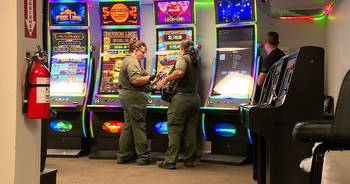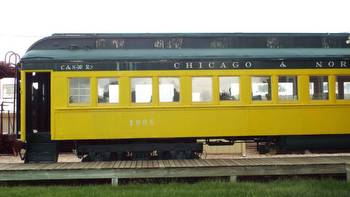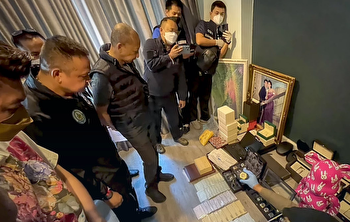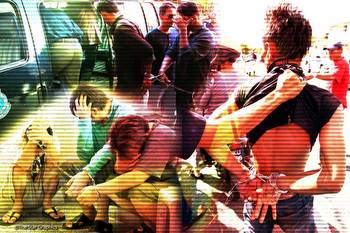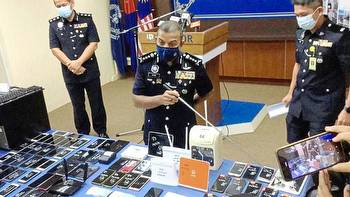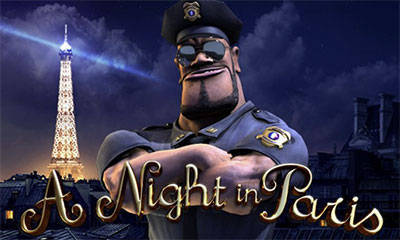Bryan County History: A brief history of gambling in Bryan County
“There is no question but what gambling is becoming one of the greatest menaces to young men of this section. We have even heard that school children, young boys in their teens, are taking up the awful habit and it is becoming alarming and some stringent regulations should be promulgated, and at once”. The Caddo Herald, February 28, 1919
Despite the adage “the house always wins”, gambling was quite popular in Indian Territory, and early newspapers mention raids on numerous gambling “houses, dens, and joints”.
Ordinance 20, passed in Caddo in 1899, strictly forbade gambling and set fines of not less than $10 or more than $25 for any violation. Gambling was defined as playing “any game of brag, bluff, poker, seven-up, three-up, twenty-one, vingtum (sic), thirteen cards, the odd trick, forty-five, whist, or at any other game of cards, dice, or any other device…” Section 8 provided a fine of $25 for the town attorney if he failed to “cause the arrest and trial” of a violator within five days.
In 1902 Rev. E. O. Taylor stated in the Durant paper that he believed the city was one of the better and cleaner towns in the Territory. He said Durant “has fewer whiskey, gambling, and brothel houses”. That same year Marshal Wilcox raided two gambling houses on East Main Street and arrested twenty young men and served warrants to the proprietors.
“Gambling must cease in Durant!” was the headline of an article in the Durant Statesman in 1907. Field Marshal A. N. Wilcox found a hidden room above the Opera House with walls eight inches thick, “the hollow space being filled with cotton seed to muffle noise” and all the paraphernalia needed for gambling. Wilcox, Deputy T. J. Sexton, Deputy Tom Latham, federal officers, and night policeman Oscar Cardin later raided the den. They found only three gamblers inside, but tore up every item in the room and carried it out to burn in the street.
Constable J. M. McPherson arrested “five negroes and one negress” at a railroad construction camp in Achille. There were about twenty gamblers in the tent, but most got away. They were held on $100 bond (each) until their foreman came the next day.
In October of 1911 Bennington’s constable located a gambling tent on the Red River, but the violators jumped into the river and got away. He confiscated the $7.50 and liquor they left behind.
Durant Weekly News
April 18, 1913
Gambling Bill Signed
Governor Cruce signed the anti-gambling bill Monday. The bill does not carry the emergency clause. The chief features of it are that it is made a felony to operate a gambling game, whether by owner or employee; misdemeanor to play at a gambling game, misdemeanor to operate slot machines or to permit the shaking of dice, as is now the custom in hotels and cigar stores. Civil penalties are
provided against property owners, and the evidence of an accomplice may be used to convict a principal.
Sheriff Dave Wright, Bennington, arrested 118 gamblers in his community, but gambling continued to be a problem, largely because of the small fines. The editor of the Caddo Herald asked: “What is $15 or on up to $50 to the man who can get out and in one day make from $500 to $1,000 per sitting?” Red Scott was a notorious habitual gambler who was arrested frequently in Durant. He always managed to pay his bail.
Anti-gambling campaigns continued for many years until the Oklahoma Charity Games Act of 1992 legalized “gaming for charitable purposes”. Other forms eventually approved include the lottery, pari-mutuel horse race betting, and of course gaming at our 100+ casinos. Gaming is now considered a major industry in Oklahoma.








